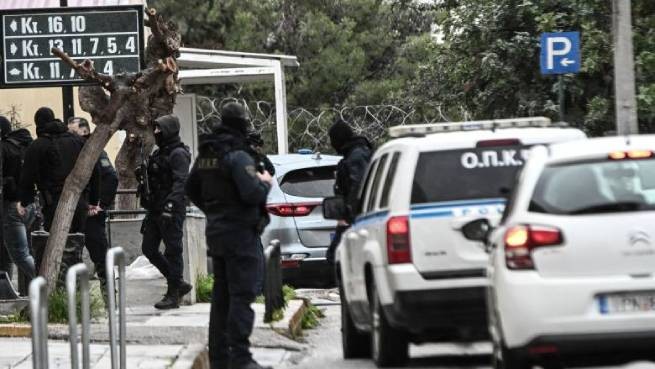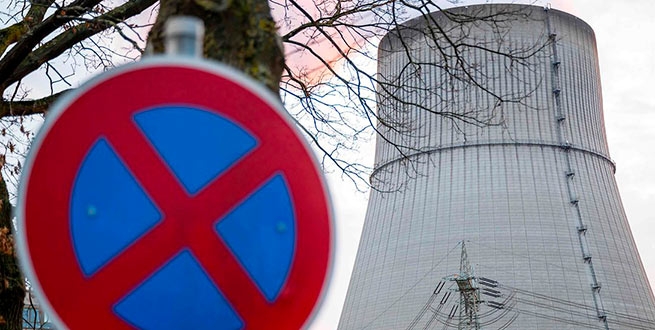On April 15, 2023, the last three nuclear power plants were shut down in Germany. This decision was taken by the German government after the largest nuclear disaster in the 21st century at the Japanese nuclear power plant Fukushima.
The last three German nuclear power plants – Isar-2, Neckarwestheim-2 and Emsland – were disconnected from the grid on Saturday evening. Chancellor Olaf Scholz’s cabinet has brought to an end the energy adventure initiated by Angela Merkel.
The German government has been planning to do this for more than a year. The reason was the largest nuclear disaster in the 21st century. It was after her that the Merkel government suddenly came to the conclusion that nuclear power plants should be … closed! Do not modernize, do not increase security, do not re-equip, but simply stop using them.
However, now, in the conditions of the flaring world economic war, such a step is suicide. For Germany itself, of course. Because this unprecedented event has at least one beneficiary. The same one that forced the German industry to start relocating overseas, where cheap energy is still in abundance today. Unlike Western Europe.
Ten years were allotted to solve this problem, during which fourteen German nuclear plants were closed one after another. Now the term has come to an end, and the Germans with German diligence have finally deprived themselves of one of the safest and most environmentally friendly energy sources. They did this despite the numerous protests of their own citizens. And contrary to the logic that dictates to their closest neighbors and longtime rivals the French, the further development of the national nuclear power plant system.
This circumstance lends particular ambiguity to the German anti-nuclear decision. France today is the largest nuclear power in Western Europe. Nineteen of its nuclear power plants operate 58 nuclear reactors, and the total generation capacity is 63,130 megawatts. The French are used to saving water, but not electricity. After all, almost three-quarters of electricity in France (to be precise, 71.6%) is generated at nuclear power plants. This is the highest rate in the world!
But until recently, Germany was a worthy competitor to France. There were 17 nuclear power plants operating in the country, generating more than a third of all electricity. But then the “green” movement began to gain momentum, then Chernobyl happened, then the Fukushima disaster struck – and the Germans were finally frightened of the peaceful atom.
On the eve of the German energy suicide, conservative German parliamentarians almost screamed that the decision taken by Merkel and implemented by Scholz would be “the biggest economic stupidity.”
That is how the former member of parliament from the Christian Democrats (SPD) Arnold Vaatz called the incident in an interview with Reuters. “I called it the biggest economic stupidity of the party since 1949, and I still hold this view,” said Vaatz, one of the five MPs who opposed the bill to phase out nuclear power. But who listens to them, these conservatives! After all, the future of the world economy, as the “greens” teach the whole world, is in renewable and safe energy sources. First of all – in the sun and wind.
Despite the fact that economically these are extremely unprofitable, but technically dubious and complex methods of generation. All the same, what happened in Germany causes them almost orgastic joy. “This is a great achievement for the millions of people who have been protesting against nuclear power in Germany and around the world for decades!” – quotes CNN the words of the representative of Greenpeace Paul-Marie Manier.
At the same time, the Germans themselves, it seems, managed to understand what their leaders had done. More than half of the Germans polled by the newspaper Bild on the eve of the closure of the last German nuclear power plants opposed the abandonment of nuclear energy. They believe that since their country has become so independent of Russian energy resources, it is necessary to somehow provide its own generation from other sources. But Germany’s Energy Minister Robert Heybeck, an ardent supporter of “green” energy and a member of the Green Party, does not care about this logic. He needs to free the country from the most dangerous atomic energy, and on this path all means are good, and other people’s arguments are insignificant.
Most of all, the Germans, one must think, are surprised by the policies of their leaders in comparison with the behavior of their neighbors and allies. Here’s what it looks like in absolute terms:
- France: 19 nuclear power plants, three-quarters of the energy generated.
- Russia: 11 nuclear power plants, about 12% of generated energy.
- Finland: two nuclear power plants, a third of the generated energy.
- Finally, the icing on the cake is the US indicators: there are 60 (!) nuclear power plants operating there, more than anywhere else in the world, and they produce a fifth of American energy. Do you need more comments?
Bavaria’s conservative Prime Minister Markus Soder backed Merkel’s initiative to phase out nuclear energy twelve years ago. Today, he thinks completely differently: “This is an absolutely wrong decision,” the British Daily Mail quoted the politician as saying. “We need all possible types of energy. Otherwise, we risk raising electricity prices and putting enterprises out of action.”
So after all, this is precisely the real goal of the entire operation to deprive Germany of atomic energy in particular and energy independence in general! This is the only way to ensure that the largest German economy in Western Europe loses both its current status and its importance. The “cold economic war” declared by America to the Europeans has already led to the relocation of several major German manufacturers to the United States. And no one is going to stop this process, alas. Anyway, Chancellor Scholz.
The economic special operation against Western Europe, which is noteworthy, is not at all a puzzling multi-move. Its essence is visible to the naked eye. Economic sanctions against Russia have deprived Europeans of cheap gas. Instead, you have to buy expensive American, and (TPPs) in Germany generate – 43.7% of energy. Due to the lack of gas, the generation of electricity at thermal power plants has noticeably decreased and electricity, accordingly, has risen in price. In the US, due to the abundance of resources, electricity is cheap. So German concerns, the main taxpayers, employers and energy consumers have to move overseas. Profit!
There is nothing surprising in the fact that America has taken the course of turning Western Europe into its trading vassal. Having gone through a difficult period of losing its own production, the United States is now striving to return factories and factories to the country. This is logical, because the gradual de-dollarization of the world economy is destroying the traditional financial-centric model of the American economy. It became necessary to start their own production and provide markets for everything that it will produce. Where can you find these markets? Russia and China are lost, the “global East” is also lost. South America is about to wriggle out of the stifling embrace of the hegemon-neighbor, Africa has never been American. What remains? That’s right, Europe!
Andreas Leschel, Chair of the Department of Environmental and Resource Economics and Sustainable Development at the Ruhr University in Bochum, naively talks about how easily his country managed to endure the rejection of Russian energy carriers: “Last winter, in the midst of the energy crisis, we saw that we could cope enough Fine”. True, last winter was mild, and the United States has not yet raised the price of its liquefied gas too brazenly. The coming winter is predicted to be much harsher. And energy prices, despite all the “ceilings” and “corridors”, keep climbing and climbing up.
So in six months the Germans, apparently, will have to experience in their own skin how “well enough” they survive the cold and darkness. Unless, of course, from across the ocean they are not able to impose the idea that this is how advanced countries that care about the environment should live today.







More Stories
Paris: wild clashes between police and "black" block
Modern Germans are far from the most hardworking in Europe
Georgia: Opposition leaders were brutally beaten by security forces (video)